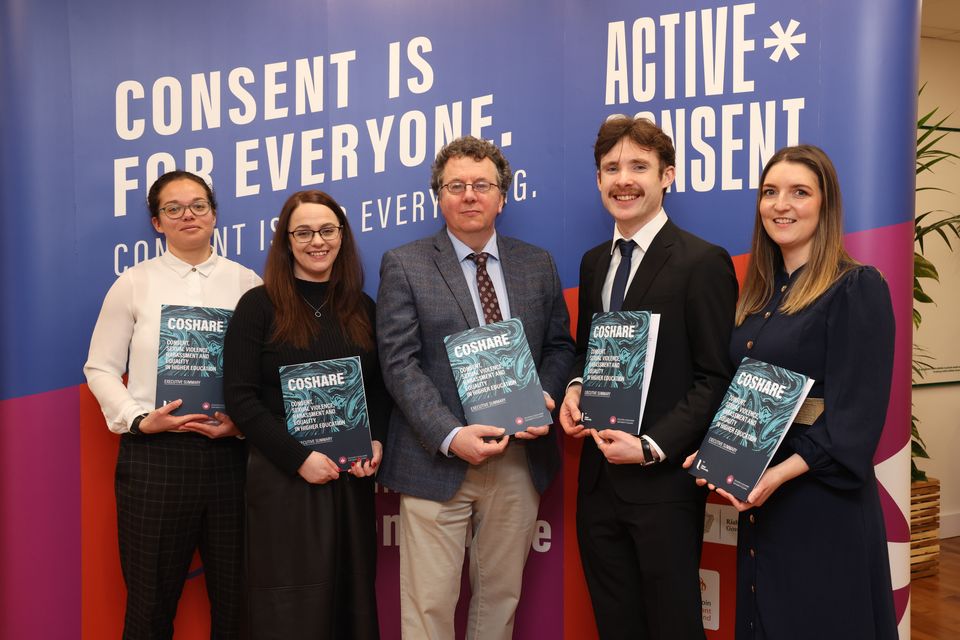Almost two-thirds of staff at higher education institutions have experienced some form of sexual harassment in the last five years, a report has revealed.
The COSHARE North-South survey outlined the key findings from the first all-island study of staff members’ experiences of consent, sexual violence and harassment in higher education across Ireland.
A total of 364 staff, including 236 participants from Northern Ireland, took part in the survey, opting to answer questions on their experiences of sexual violence and harassment.
Dr Susan Langdon, Senior Lecturer in Psychology (Mental Health) at Ulster University, said the findings show a “deeply concerning pattern”.
“Sexual violence and harassment is pervasive in all walks of our lives but it should not be,” she said.
“These findings demonstrate concerning patterns of sexual violence and harassment experienced by staff in higher education in both their personal and professional lives.”
The survey comes at a time when violence against women has been on the rise in Northern Ireland.
Members of the COSHARE research team from Ulster University & University of Galway launch the COSHARE North-South survey report.
Last September saw the launch of Stormont’s long-awaited strategic framework for Ending Violence Against Women and Girls (EVAWG),
First Minister Michelle O’Neill said the strategy — which charts the way forward until 2031 — marked the first step in dealing with a problem she described as an “epidemic”.
Of those surveyed, 43% said they had experienced some form of this behaviour in their work or personal lives in the last year, while 66% said they had experienced it in the last five years.
Almost two-thirds of participants (64%) said they had experienced sexual harassment in the past five years. This included 57% who had experienced sexist hostility in the last five years (27% in the last year), 23% with an experience of electronic or visual sexual harassment in the last five years (11% in the last year).
One quarter (26%) experienced some form of sexual violence in the past five years.
Almost a quarter said they had been touched in a way that made them feel uncomfortable, 16% indicated unwanted attempts of stroking or kissing; and 10% had been made to touch, stroke or kiss someone when they did not want to.
Over 30% said they experienced sexualised comments in the last five years (19% in the last year) while 31% had experienced unwanted sexual attention in the last five years (13% in the last year).
“While this behaviour should never be tolerated, we are grateful to our own higher education Institutions, Ulster University and the University of Galway, for their support and encouragement to progress with this important work,” Ms Langdon continued.
“We’re pleased that our institutions already proactively work with us on a range of initiatives that look to end violence and harassment in the workplace.
“We are also grateful to our wider higher education colleagues who supported and facilitated dissemination and awareness raising of this research, ensuring that those who wished to contribute, had their say.”
The cross-border research said there must be “greater collaboration between NI and Republic of Ireland Higher Education sectors to enhance protections for staff and support for change.”
Less than half (46%) of the participants agreed their higher education Institution proactively addressed issues of sexual violence and harassment, while only one-third (36%) saw their senior management as visible on this issue.
When asked about campus culture, 14% said agreed that sexual harassment and violence among staff was a problem at their institution.
Around 40% of staff said that they had received particular forms of information from their HEI relevant to consent, sexual violence and harassment.
There were other encouraging signs that staff want to contribute through being involved in training, with 80% displaying a willingness to support initiatives and 65% saying they would take an active role in delivery.
